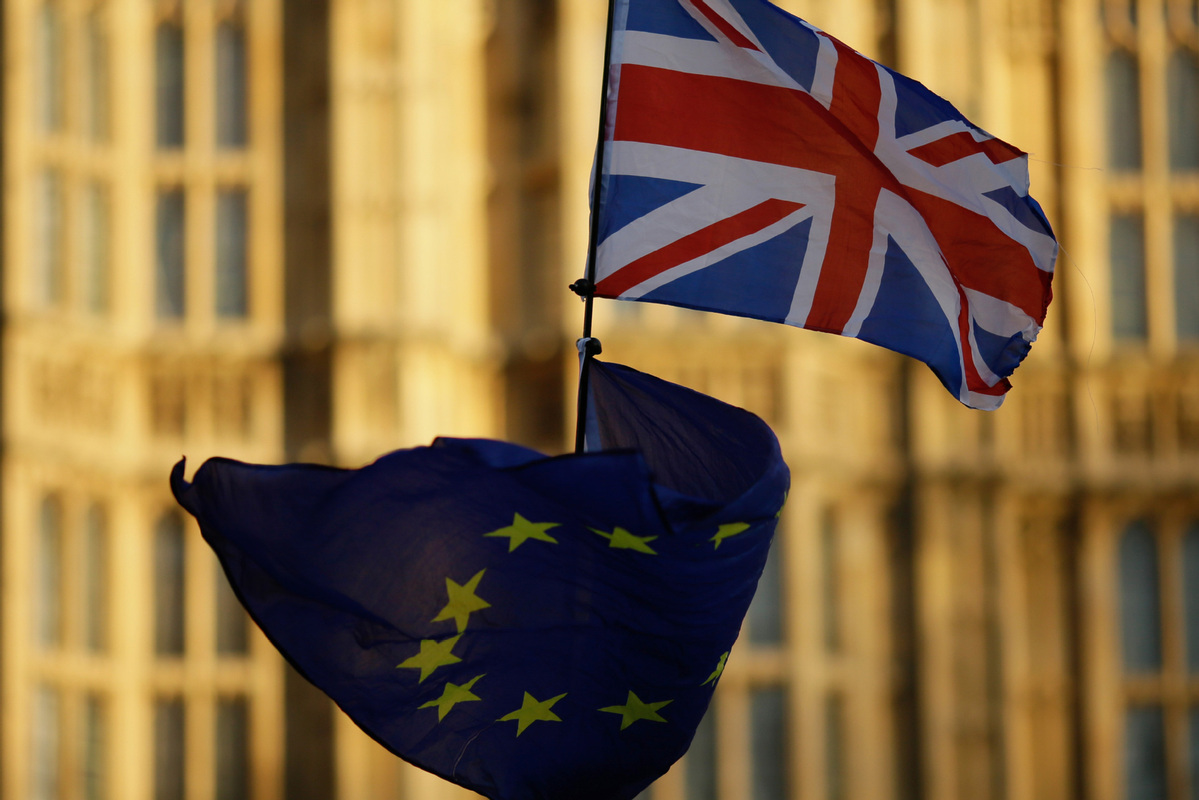Brexit will happen on Oct 31 despite PM's unsigned delay request, UK says
Updated: 2019-10-21 09:39

LONDON - The British government insisted on Sunday the country will leave the European Union on Oct 31 despite a letter that Prime Minister Boris Johnson was forced by parliament to send to the bloc requesting a Brexit delay.
The Brexit maelstrom has spun wildly in the past week between the possibility of an orderly exit on Oct 31 with a deal that Johnson struck on Thursday and a delay after he was forced to ask for an extension late on Saturday.
Johnson's defeat in the British parliament over the sequencing of the ratification of his deal exposed the prime minister to a law passed by those opposed to a no deal departure, demanding he request a delay until Jan 31.
Johnson sent the request note as required, but unsigned, and added another signed letter arguing against what he cast as a deeply corrosive delay. One of his most senior ministers said Britain would still leave the bloc on Oct 31.
"We are going to leave by Oct 31. We have the means and the ability to do so," Michael Gove, the minister in charge of no-deal Brexit preparations, told Sky News.
"That letter was sent because parliament required it to be sent ... but parliament can't change the prime minister's mind, parliament can't change the government's policy or determination."
In yet another twist to the running Brexit drama, Johnson sent three letters to Donald Tusk, the president of the European Council.
First, a brief cover note from Britain's EU envoy explaining that the government was simply complying with the law; second, an unsigned copy of the text that the law, known as the Benn Act, forced him to write; and a third letter in which Johnson said he did not want an extension.
"I have made clear since becoming Prime Minister and made clear to parliament again today, my view, and the Government's position, that a further extension would damage the interests of the UK and our EU partners, and the relationship between us," Johnson said in the third letter, signed "Boris Johnson".
The EU, which has grappled with the tortuous Brexit crisis since Britons voted 52%-48% to leave in a 2016 referendum, was clearly bewildered by the contradictory signals from London.
Tusk said he had received the request from Johnson and would start consulting EU leaders on how to react.
French President Emmanuel Macron told Johnson that Paris needed swift clarification on the situation after Saturday's vote, an official at the French presidency told Reuters.
"He (Macron) signalled a delay would be in no one's interest," the official said.
It was unlikely that the EU's 27 remaining member states would refuse Britain's request, given the impact on all parties of a no-deal Brexit. Diplomats said on Sunday the bloc would play for time rather than rush to decide, waiting to see how things developed in London.
Gove said the risk of no deal had increased and the government would step up preparations for it, including triggering its "Operation Yellowhammer" contingency plans.
"We cannot guarantee that the European Council will grant an extension," he said, adding that he would chair a meeting on Sunday "to ensure that the next stage of our exit preparations, our preparedness for a no deal, is accelerated".
Reuters
























